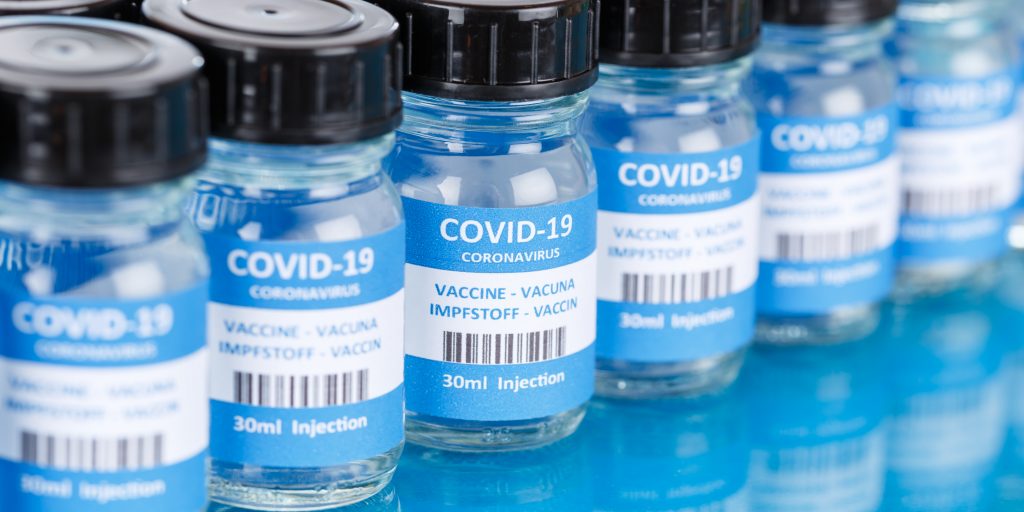“The United States will finally share some of the publicly funded innovations needed to produce COVID-19 vaccines with the world. But this is just a first step. Pharmaceutical companies must be compelled to follow suit.” – The People’s Vaccine Alliance
The U.S. National Institutes of Health (NIH) signed a deal today with the World Health Organization’s COVID-19 Technology Access Pool (C-TAP) and the Medicines Patent Pool (MPP) that allows manufacturers greater access to key COVID-19 technologies owned by NIH.
 The licensing agreement offers 11 technologies under transparent, global and non-exclusive licenses. They include “the stabilized spike protein used in currently available COVID-19 vaccines, research tools for vaccine, therapeutic and diagnostic development as well as early-stage vaccine candidates and diagnostics.”
The licensing agreement offers 11 technologies under transparent, global and non-exclusive licenses. They include “the stabilized spike protein used in currently available COVID-19 vaccines, research tools for vaccine, therapeutic and diagnostic development as well as early-stage vaccine candidates and diagnostics.”
The agreement came just prior to the U.S.-chaired Global COVID-19 Summit taking place today.
Maaza Seyoum, global south convenor of the People’s Vaccine Alliance, called the announcement a “glimmer of hope” in a sea of other disappointments relating to sharing of funds and technology to fight the pandemic. Earlier this week, the Alliance lamented the revised draft text on waiver of IP rights for COVID technologies being considered by World Trade Organization members, which a number of world leaders and Nobel Laureates said will do “nothing to advance vaccine equity” in a letter published by the Alliance.
The organization said of the NIH’s decision to share its technology in an emailed statement today:
Amid a summit of disappointing and insufficient funding pledges, there was a glimmer of hope. The United States will finally share some of the publicly funded innovations needed to produce COVID-19 vaccines with the world. But this is just a first step. Pharmaceutical companies must be compelled to follow suit. There is no excuse for private monopolies on lifesaving public science in a pandemic.
Dr. Tedros Adhanom Ghebreyesus, WHO Director-General, said: “I welcome the generous contribution NIH has made to C-TAP and its example of solidarity and sharing. Whether it’s today’s pandemic or tomorrow’s health emergency, it’s through sharing and empowering lower-income countries to manufacture their own health tools that we can ensure a healthier future for everyone.”
A press release said that “[i]n most circumstances, NIH will not collect royalties on sales of products licensed in 49 countries classified by the United Nations as Least Developed Countries.”
The 11 technologies included in the licensing agreement are:
- Prefusion spike proteins (Vaccine Development)
- Structure-Based Design of Spike Immunogens (Research Tool for Vaccine Development)
- Pseudotyping Plasmid (Research Tool for Vaccine Development)
- ACE2 Dimer construct (Research Tool for Drug Development)
- Synthetic humanized llama nanobody library and related use (Research Tool for Drug and Diagnostic Development)
- Newcastle Disease Virus-Like Particles Displaying Prefusion-Stabilized Spikes (Vaccine Candidate)
- Parainfluenza virus 3 based vaccine (Vaccine Candidate)
- A VSV-EBOV-Based Vaccine (Vaccine Candidate)
- RNASEH-Assisted Detection Assay for RNA (Diagnostic)
- Detection of SARS-CoV-2 and other RNA Virus (Diagnostic)
- High-Throughput Diagnostic Test (Diagnostic)
The United States also committed $200 million more to the pandemic preparedness and global health security financial intermediary fund (FIF) at the World Bank in 2022, bringing the U.S. total pledge to the FIF to $450 million to date, as well as to rapid review of generic products for global COVID-19 response, among a number of other commitments. About 40 countries and dozens of NGOs made commitments as part of today’s Summit.
Image Source: Deposit Photos
Image ID:441471790
Copyright:Boarding2Now

![[IPWatchdog Logo]](https://ipwatchdog.com/wp-content/themes/IPWatchdog%20-%202023/assets/images/temp/logo-small@2x.png)

![[Advertisement]](https://ipwatchdog.com/wp-content/uploads/2024/04/Patent-Litigation-Masters-2024-sidebar-early-bird-ends-Apr-21-last-chance-700x500-1.jpg)

![[Advertisement]](https://ipwatchdog.com/wp-content/uploads/2021/12/WEBINAR-336-x-280-px.png)
![[Advertisement]](https://ipwatchdog.com/wp-content/uploads/2021/12/2021-Patent-Practice-on-Demand-recorded-Feb-2021-336-x-280.jpg)
![[Advertisement]](https://ipwatchdog.com/wp-content/uploads/2021/12/Ad-4-The-Invent-Patent-System™.png)







Join the Discussion
No comments yet.